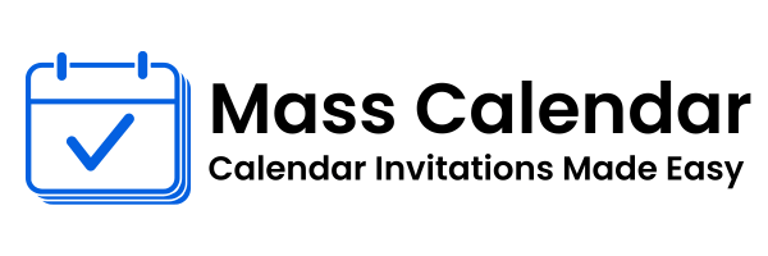Mastering the Art of Sending Calendar Invites for Meetings and Events
In today's fast-paced digital environment, organizing meetings and events often requires juggling multiple communication platforms. One tool that remains essential is the calendar invite. Whether you're coordinating internal team meetings or client briefings, using calendar invites effectively helps keep everyone on track and ensures timely participation.
BLOG
8/6/20252 min read


In today's fast-paced digital environment, organizing meetings and events often requires juggling multiple communication platforms. One tool that remains essential is the calendar invite. Whether you're coordinating internal team meetings or client briefings, using calendar invites effectively helps keep everyone on track and ensures timely participation.
What is a Calendar Invite?
A calendar invite is a digital invitation that allows participants to add an event to their personal calendar with all necessary details date, time, location, and meeting links. It minimizes the back-and-forth involved in scheduling and prevents missed meetings due to lack of clarity.
Whether you're scheduling a small team meeting or planning a webinar, understanding how to use calendar invites correctly is critical.
Benefits of Calendar Invites
Structured Scheduling: Invites provide a structured way to manage time across multiple people.
Automated Reminders: Most calendar platforms send notifications before the event starts.
Real-Time Updates: Any change made in the invite reflects across participants’ calendars instantly.
Sending Multiple Calendar Invites Efficiently
There are situations where you need to send multiple calendar invites, think product demos, multi-session training, or recurring team huddles. Knowing how to manage multiple calendar invites in Outlook or other platforms can save considerable time and effort.
Also, sending multiple calendar invites in Gmail can be useful when dealing with large teams or stakeholder groups. Always make sure the subject lines are clear and the time zones are aligned for everyone involved.
Sending Calendar Invites in Gmail and Outlook
If you're looking to send a calendar invite in Gmail, here’s a general approach:
Open your calendar (e.g., Google Calendar)
Click on the desired time slot
Fill in the event details
Add guests
Click “Save” and “Send”
Similarly, to send mass meeting invites in Outlook, you can:
Create a new meeting in Outlook Calendar
Add subject, location, and time
Use the "Scheduling Assistant" to check availability
Add all invitees
Send the invite
Make sure you’ve double-checked the recipient list to avoid confusion or errors.
Avoiding Overload with Bulk Calendars
When scheduling for large groups, using a bulk calendar system helps manage invites efficiently. These can be essential in educational institutions, companies running recurring training sessions, or marketing teams launching multi-city events.
Just ensure you do not over-send invites, which could be perceived as spam. Consolidate overlapping events and clearly distinguish between optional and mandatory sessions.
Common Mistakes to Avoid
Overbooking participants due to calendar conflicts
Sending invites without proper meeting context
Forgetting to include conferencing links or agenda
Always test your calendar invite by sending it to yourself first. This simple step helps catch errors and ensures formatting consistency.
Conclusion
In a world driven by digital communication, mastering calendar invites especially when dealing with large or distributed teams is no longer optional. Whether it’s about understanding what is a calendar invite or how to send a meeting invite in Gmail, efficient scheduling reflects professionalism and enhances productivity.
MassCalendar.in
Send Bulk & Mass Calendar Invites Instantly
CONTACT
Meetings
+44 (0) 203 916 5117
© 2025. All rights reserved.
Help?
